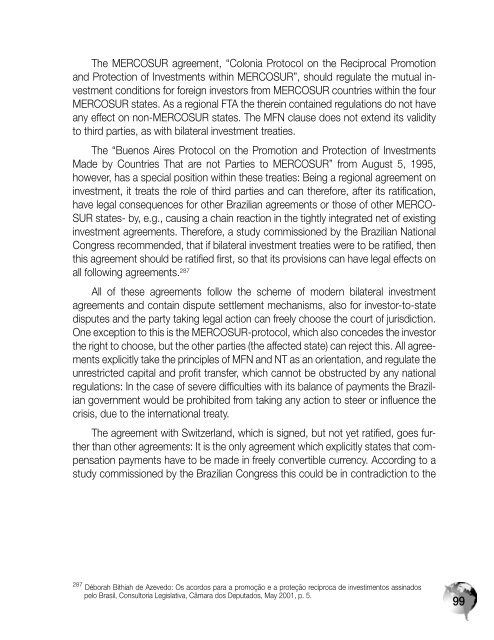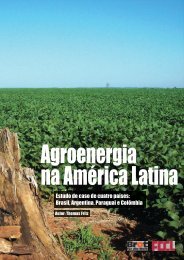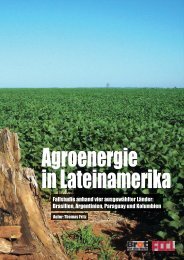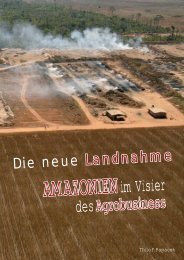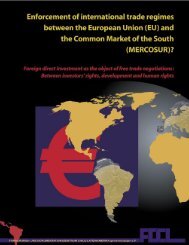Download - FDCL
Download - FDCL
Download - FDCL
You also want an ePaper? Increase the reach of your titles
YUMPU automatically turns print PDFs into web optimized ePapers that Google loves.
The MERCOSUR agreement, “Colonia Protocol on the Reciprocal Promotion<br />
and Protection of Investments within MERCOSUR”, should regulate the mutual investment<br />
conditions for foreign investors from MERCOSUR countries within the four<br />
MERCOSUR states. As a regional FTA the therein contained regulations do not have<br />
any effect on non-MERCOSUR states. The MFN clause does not extend its validity<br />
to third parties, as with bilateral investment treaties.<br />
The “Buenos Aires Protocol on the Promotion and Protection of Investments<br />
Made by Countries That are not Parties to MERCOSUR” from August 5, 1995,<br />
however, has a special position within these treaties: Being a regional agreement on<br />
investment, it treats the role of third parties and can therefore, after its ratification,<br />
have legal consequences for other Brazilian agreements or those of other MERCO-<br />
SUR states- by, e.g., causing a chain reaction in the tightly integrated net of existing<br />
investment agreements. Therefore, a study commissioned by the Brazilian National<br />
Congress recommended, that if bilateral investment treaties were to be ratified, then<br />
this agreement should be ratified first, so that its provisions can have legal effects on<br />
all following agreements. 287<br />
All of these agreements follow the scheme of modern bilateral investment<br />
agreements and contain dispute settlement mechanisms, also for investor-to-state<br />
disputes and the party taking legal action can freely choose the court of jurisdiction.<br />
One exception to this is the MERCOSUR-protocol, which also concedes the investor<br />
the right to choose, but the other parties (the affected state) can reject this. All agreements<br />
explicitly take the principles of MFN and NT as an orientation, and regulate the<br />
unrestricted capital and profit transfer, which cannot be obstructed by any national<br />
regulations: In the case of severe difficulties with its balance of payments the Brazilian<br />
government would be prohibited from taking any action to steer or influence the<br />
crisis, due to the international treaty.<br />
The agreement with Switzerland, which is signed, but not yet ratified, goes further<br />
than other agreements: It is the only agreement which explicitly states that compensation<br />
payments have to be made in freely convertible currency. According to a<br />
study commissioned by the Brazilian Congress this could be in contradiction to the<br />
287 Déborah Bithiah de Azevedo: Os acordos para a promoção e a proteção recíproca de investimentos assinados<br />
pelo Brasil, Consultoria Legislativa, Câmara dos Deputados, May 2001, p. 5.<br />
99


